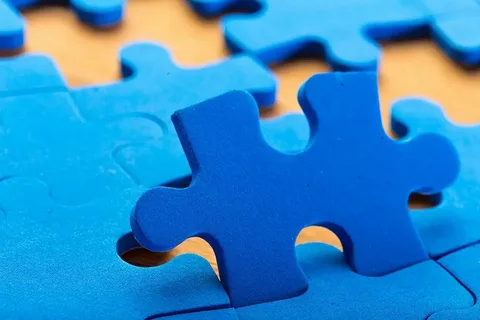Wordle has captured the imagination of puzzle enthusiasts around the world. Its simple format guessing a five-letter word in six attempts offers a daily brain exercise that keeps people coming back. But for those who want to step up their game, the Try Harder Wordle approach is the key to becoming a puzzle master. By honing strategies, you can improve your success rate and consistently solve puzzles with fewer guesses.
1. Start with Smart Guesses
One of the most important steps in Wordle is your first guess. The word you choose can set the stage for a more effective process of elimination. Experienced players often recommend starting with words that contain common vowels (A, E, I, O, U) and frequently used consonants like R, T, and S. Words like “SLATE,” “CRANE,” or “ADORE” are great options, as they provide a good mix of letters. By starting with such a word, you maximize the amount of information you gain about the correct word’s structure, allowing you to make more informed guesses in subsequent turns.
2. Use the Process of Elimination Efficiently
A critical part of the Try Harder Wordle strategy is using the clues from each guess to narrow down your possibilities. After each guess, pay close attention to the colors:
- Green indicates the letter is correct and in the right position.
- Yellow means the letter is correct but in the wrong spot.
- Gray shows the letter is not in the word at all.
The key is to focus on eliminating letters that don’t work while honing in on those that do. For example, if your first guess reveals that “A” is in the word but not in the second position, your next guess should place the “A” in a different spot while testing new consonants.
3. Avoid Repeating Letters Too Soon
Repetition can be a trap for inexperienced players. In the early stages of the game, avoid guessing words with letters you already know aren’t part of the solution. For instance, if you’ve already determined that “S” and “L” aren’t in the word, there’s no sense in guessing “SLIME.” The goal is to maximize the efficiency of each guess by introducing new letters that haven’t been ruled out yet. Instead, focus on words that introduce fresh letters. This approach allows you to gather as much information as possible with each attempt, increasing your chances of solving the puzzle more quickly.
4. Consider Common Word Patterns
Certain patterns are more common in the English language. For example, many five-letter words contain a vowel in the second or fourth position. Similarly, consonant clusters like “ST,” “BL,” or “TR” are frequent. Understanding these common patterns can help you refine your guesses. For instance, after receiving clues from your first or second guess, you can leverage word patterns to make better decisions. If you know that the word ends in “E” and contains an “R,” consider options like “SHARE,” “STONE,” or “BRIDE” rather than random letter combinations.
5. Don’t Overthink Uncommon Words
While some Wordle words may seem tricky or unusual, the game generally relies on commonly used words. The Try Hard Wordle method advises against guessing overly complex or obscure words. Instead, focus on familiar vocabulary that fits the information you’ve gathered so far. This approach prevents unnecessary frustration and allows you to remain on track toward solving the puzzle. Words like “ZEBRA” or “MINTY” may sound fun but are less likely to be the final solution compared to common five-letter words like “PLANE” or “WATER.”
6. Use Double Letters Wisely
Double letters can complicate the guessing process, but they are often present in Wordle puzzles. Words like “APPLE,” “SHEEP,” or “LLAMA” introduce double letters, which many players overlook until later guesses. If your clues suggest a certain letter is correct but you’re running out of other possibilities, consider words that might use the letter twice. This tactic works best once you’ve ruled out other options. If you’re down to your last few guesses, thinking about double letters can provide the breakthrough you need to solve the puzzle.
7. Leverage Word Solvers as a Learning Tool
For those really dedicated to mastering Wordle, using a word solver can help you practice different strategies and learn new words. Word solvers are tools that allow you to input known letters and receive a list of potential word matches. While you shouldn’t rely on these tools during actual gameplay, they can be valuable for training your brain to recognize patterns and potential solutions more quickly. By studying the results from a word solver, you can build a deeper understanding of how certain letter combinations work together, making you a stronger player in the long run.
8. Settle Into a Rhythm
Consistency is the key to success in Wordle. Over time, you’ll develop a rhythm for solving puzzles by following structured steps. Start with a strong guess, analyze the feedback, use the process of elimination, and refine your guesses. The more you play, the better your intuition will become. Make a habit of playing every day, and track your progress to see how you improve. As you settle into this rhythm, you’ll find that the puzzle becomes more intuitive and your solving times decrease.
9. Challenge Yourself with Harder Variants
If you’ve mastered the basic Wordle format, consider stepping up to harder variants like Try Harder Wordle. These versions add additional layers of difficulty, such as requiring players to guess words with specific constraints. For example, some versions may limit the number of vowels or require longer words, pushing players to think even more strategically. By experimenting with harder versions of the game, you can refine your skills and stay engaged, especially after solving the standard Wordle puzzles with ease.
Conclusion
The Try Harder Wordle method is all about maximizing efficiency and minimizing guesswork. By applying smart strategies like using common letter patterns, avoiding repeats, and considering double letters, you can consistently improve your performance and solve puzzles with fewer attempts. Wordle may seem like a simple game, but mastering it requires a balance of logical thinking, strategic guessing, and daily practice. Keep refining your approach, and soon enough, you’ll become a Wordle expert capable of solving even the trickiest puzzles. Whether you’re just starting or you’re already well-versed in the game, these best practices will help you Try Harder Wordle and see consistent success day after day.
For Read More Informative Blogs Click Here …


